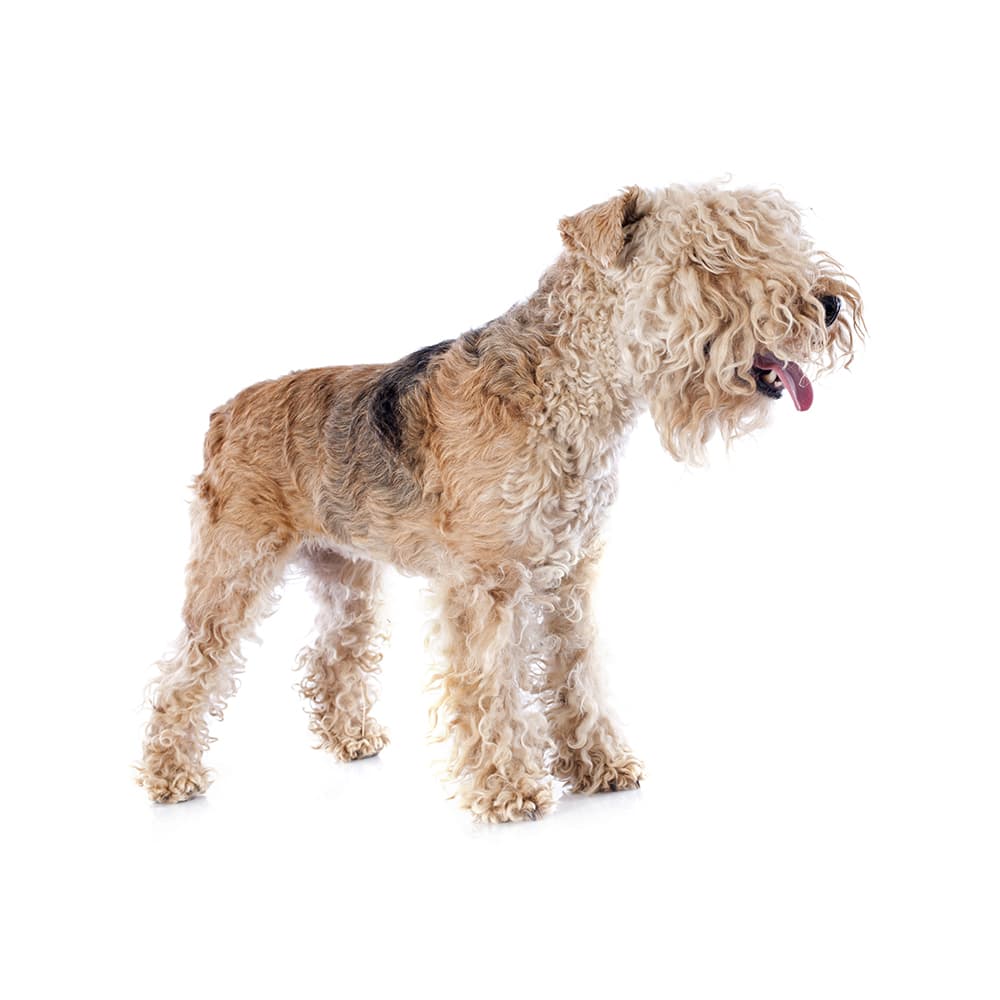Discover your dog's connection to this breed and 200+ others


Discover your dog's connection to this breed and 200+ others



The Lakeland Terrier is one of the oldest known working terrier breeds. The breed originated in the early 19th century in the Lake District of England, from which it takes its name. The breed is derived from the Welsh Terrier and the now extinct Old English Black Terrier and Tan Terrier. According to the American Kennel Club (AKC), other breeds that are said to have been added while developing the Lakeland include the Wire Fox Terrier, Border Terrier, Bedlington Terrier, and the early Dandie Dinmonts. The Lakeland Terrier was initially bred to hunt and kill foxes and other vermin that threatened sheep during lambing season. Over time, the Lakeland Terrier developed into a distinct breed, known for its tenacity, courage, and adaptability.
Lakeland Terriers can suffer from cataracts, cryptorchidism, dermatomyositis, glaucoma, hypothyroidism, Legg–Calvé–Perthes disease, primary lens luxation, microphthalmia, persistent
pupillary membranes, prognathism, and von Willebrand disease. Genetic testing is recommended, including for the following additional conditions: hyperuricosoria, degenerative myelopathy, and progressive rod-cone degeneration.
Lakeland Terriers are known for their energetic, friendly, and independent nature. They are intelligent dogs that can be somewhat stubborn at times. They are often described as being fearless and confident, with a high level of curiosity.
Lakelands are known to be good with children and can be friendly toward strangers, although they may be reserved at first. Like many terrier breeds, they have a high prey drive and may not do well with other small pets unless socialized from a young age. They are also known for their high energy levels and need for regular exercise.
A canine genetic lineage is a group of individuals or entire breeds that descended from common ancestors predating modern breed formation. Often these lineages are associated with a ‘type’ of dog with a unique historical working role and associated behaviors (e.g., herding, scent hunting, etc.).
Terriers were bred to hunt pests like rats, foxes, and badgers. Terriers are tenacious and fearless with high energy levels, strong prey drive, and feisty temperaments which all help in their hunting abilities. Terriers were used as mighty hunters in both urban and rural settings. Terriers have natural hunting instincts and protective tendencies.
Example breeds with ancestry from this lineage include Jack Russell Terrier, Scottish Terrier, and Yorkshire Terrier.
Lakeland Terriers are considered a hypoallergenic breed, making them a good choice for many people who suffer from allergies.
They are known for their ability to climb and will often stand on their hind legs to get a better view of their surroundings, a characteristic that's unusual among many dog breeds.
The Lakeland Terrier has had a few moments of fame: a Lakeland named Stingray of Derryabah won Best in Show at the prestigious Westminster Kennel Club Dog Show in 1968.
https://vgl.ucdavis.edu/breed/lakeland-terrier?page=0
https://www.fci.be/en/nomenclature/LAKELAND-TERRIER-70.html
https://www.akc.org/dog-breeds/lakeland-terrier/
https://www.ukcdogs.com/lakeland-terrier
Recommended by top vets with decades of experience
21 breeds
64 genetic health markers
50 genetic trait markers
